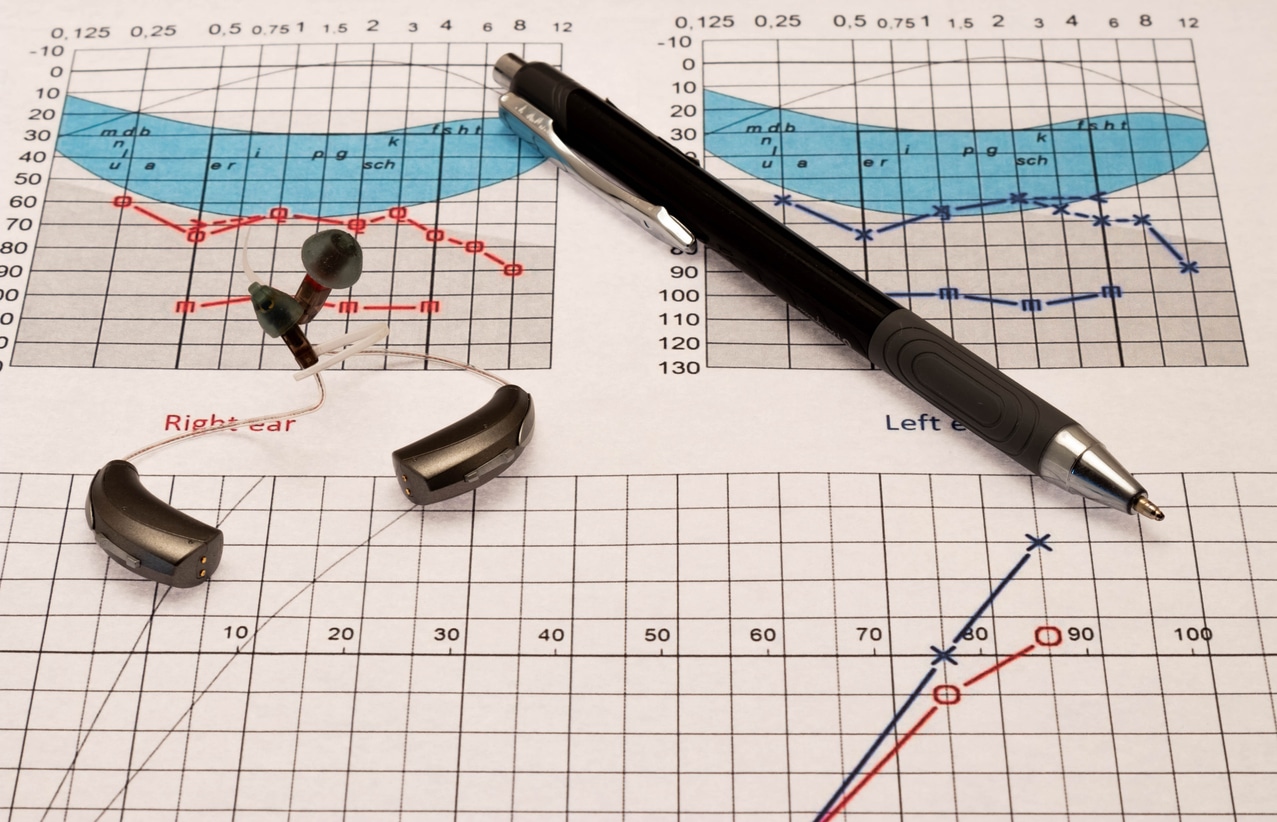Every sound has a unique signature of pitch and volume, from your favorite music to milk steaming at Savannah Coffee Roasters. Our ears are designed to detect a broad range of these sounds, but our hearing can change over time.
Understanding how we hear and what happens when hearing begins to fade can help you take proactive steps against hearing loss.
Frequency and Volume

Sound travels in waves. These waves vary in frequency, which we perceive as pitch, and volume, which we interpret as loudness.
Frequency, measured in hertz (Hz), describes how fast sound waves vibrate. Low-frequency sounds (like distant thunder) vibrate slowly, while high-frequency sounds (like birdsong) vibrate quickly. Humans typically hear in the range of 20 Hz to 20,000 Hz, though this range often shrinks with age.
Volume, measured in decibels(dB), indicates the intensity of a sound. A few measurements include:
- 0 dB: the faintest sound detectable by the average ear
- 30 dB: a quiet library
- 60 dB: casual conversation
- 90 dB: power tools or heavy traffic
- 120 dB: rock concert or emergency siren
What Happens When Hearing Declines?
As we age, or if we’ve been exposed to loud noises, ototoxic medications or other risk factors, our ability to hear certain pitches and volumes may fade.
Hearing loss isn’t just about volume but also clarity and range. That’s why someone with hearing damage might hear a drumbeat clearly but miss the sound of birdsong or speech in a noisy room.
How Do We Test Hearing?
Your specialist will conduct a pure-tone audiometry test to get an idea of your hearing. This test measures how well you can hear sounds across different frequencies and volumes. The results are displayed on an audiogram, a visual map of your hearing range. It helps determine the presence of hearing loss and its severity.
Managing Hearing Loss
If testing reveals hearing loss, your specialist may prescribe hearing aids. These small, sophisticated devices amplify sound according to the specific frequencies you struggle to hear, making conversations and daily sounds clearer.
Take the Next Step Toward Better Hearing
Early detection makes a big difference when it comes to hearing loss. If you struggle to hear certain sounds, contact Audiology and Hearing Aid Services to schedule your hearing test with one of our specialists.